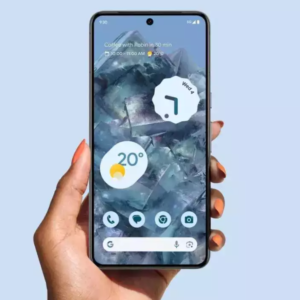Google Pixel 11 Could See Face ID Hardware Return
The tech world is abuzz with speculation that Google might reintroduce advanced Face ID-style hardware for its next-generation Pixel 11 smartphone. This move would build on Google’s ongoing commitment to improving biometric security and user convenience, specifically around Face Unlock capabilities. Such a development could mean that Google is aiming to establish its face recognition as a more secure, high-functioning feature—one that doesn’t just match Apple’s Face ID in usability, but perhaps even surpasses it in flexibility. Here’s a deep dive into what this change could mean and why it’s significant for users and the future of Pixel smartphones.
If Google decides to bring back Face ID hardware with the Pixel 11, it could mark a major shift toward making facial recognition a core security feature across the Pixel lineup. By including hardware such as IR sensors, a dot projector, or flood illuminators, the Pixel 11 could achieve the high security standards of the Pixel 4 but with a modern, bezel-less design. This upgrade would also enhance security through Android’s Biometric Security Program, which evaluates devices to ensure they meet stringent biometric standards, including the Spoof Acceptance Rate (SAR) and False Acceptance Rate (FAR) guidelines.
The Pixel 11’s Face Unlock would likely qualify as a secure Class 3 biometric—Android’s highest security standard, approved for sensitive applications like contactless payments and access to encrypted data. This move would allow Google to compete directly with Apple’s Face ID, which has already been adopted across Apple’s devices, from iPhones to iPads, due to its reliability and security.
- Remarkable Google Pixel 9a Rumored to Get a Surprising Cutback
- Leaked Tensor G5 Chip in Pixel 10 — Is Google Ready to Challenge Apple and Samsung?
- What to Expect from the Google Pixel 9a — All the Latest Rumors
A Glimpse Back: Pixel 4’s Face Unlock Technology

In 2019, Google introduced an advanced Face Unlock feature with the Pixel 4. This model featured specialized hardware, including infrared (IR) sensors, a dot projector, and a flood illuminator to deliver precise and secure facial recognition. Unlike standard RGB cameras, which can struggle in low light and be fooled by 2D images, these components made Pixel 4’s Face Unlock highly reliable in diverse lighting conditions, preventing spoofing attempts and setting it apart from most smartphone biometrics at the time.
However, the setup required a large bezel to house the tech, which didn’t align with consumers’ growing preference for minimal bezels and full-screen displays. Consequently, this Face Unlock hardware was left behind in subsequent Pixel models as Google focused on streamlining design and prioritizing fingerprint scanning.
Pixel 8’s Software-Only Face Unlock: A Step Forward

Fast-forward to 2023, and Google made headlines by reintroducing Face Unlock on the Pixel 8 and Pixel 8 Pro models. However, this time, the technology used a software-based approach without dedicated hardware, relying instead on machine learning algorithms and the front camera. While this offered an efficient, streamlined solution that allowed for a smaller bezel, it had limitations.
Software-based facial recognition can be less secure and struggles in low-light conditions, which limits its compatibility with more secure applications. The Pixel 8’s face recognition is classified as a Class 3 biometric, which Android allows for use in sensitive applications like banking and payment authentication, though it’s still less robust than the Pixel 4’s hardware-supported system.
Advancing the Pixel Lineup with Face ID and Machine Learning

The potential reintroduction of Face ID hardware would be a natural extension of Google’s broader emphasis on artificial intelligence and machine learning advancements. AI-driven algorithms with hardware-backed facial recognition could mean faster processing, improved accuracy, advanced security against spoofing attempts.
With Google’s advanced algorithms, such a system could recognize users with greater accuracy across diverse settings and lighting environments, reducing false acceptance rates and improving the overall user experience.
Implications for Pixel Users and the Future of Smartphone Security
For Pixel users, a Face ID hardware comeback would mean an enhanced, highly secure method of unlocking their phones and protecting sensitive data. It would also demonstrate Google’s long-term commitment to investing in both convenience and security. Face Unlock could become more than just a quick way to access the device, growing into a central feature for multi-layered security, offering seamless integration with services requiring high biometric authentication standards, from mobile banking to Google Wallet.
Bringing back dedicated Face ID hardware on the Pixel 11 would allow Google to set new standards for Android security, aligning the Pixel’s biometric tech with the sophistication and trust Apple has cultivated around Face ID. While details on design and implementation remain speculative, a return to hardware-backed Face Unlock could significantly elevate Google’s presence in the smartphone security landscape.
In the competitive world of smartphone biometrics, Google’s focus on hardware-driven Face Unlock would not only bring powerful security to the Pixel 11 but could influence the broader Android ecosystem as manufacturers strive to meet users’ growing expectations for seamless, secure authentication. Stay tuned with us on Facebook & Instagram for more info.

[…] Google Pixel 11 May See the Return of Face ID Hardware — Here’s What to Expect […]